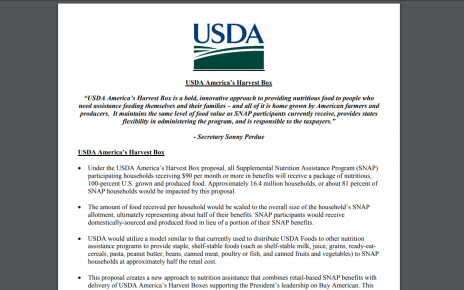Government will continue as a minority government!!!
NVA (right wing) is against the Marrakesh migration pact (also called the European suicide pact) and has tried to convince the other members of the government to not sign it.
Majority of the government wants to sign it so NVA will step out of it tomorrow if the prime minister leaves the country for Marrakash. https://nos.nl/artikel/2262641-premier-michel-gaat-door-zonder-n-va-bewindslieden.html

What is the Marrakesh migration pact (also called the European suicide pact)?
The Global Compact for Safe, Orderly and Regular Migration (GCM) is a “intergovernmentally negotiated agreement, prepared under the auspices of the United Nations, [that covers] all dimensions of international migration in a holistic and comprehensive manner”. The United Nations conference to adopt the compact will be held in Marrakesh, Morocco, on 10–11 December 2018.
– it does not distinguish between legal and illegal migrants, particularly when it comes to welfare.
-would reduce national sovereignty and mix up the difference between illegal and legal immigration as well as that between economic and humanitarian immigration.
-proposal to defund news outlets espousing anti-migration rhetoric and the pact could be used to criminalize political criticism.
-would give even migrants who are illegally many additional rights like housing, schooling,…
Austria, Australia, Bulgaria, Croatia, the Czech Republic, Hungary, Italy, Israel, Poland, USA, Slovakia and Switzerland have already stated they will not sign the agreement.
UN also calls this pact “replacement migration”
Het #Marrakesh pact is een script voor wat de VN noemt: “replacement migration”
In Nederlands heet dat “omvolking”.
#omvolking
Translated from Dutch
The #Marrakesh Pact is a script for what the UN calls: “Replacement migration” In Dutch called that “repopulation”.
#omvolking
Replacement Migration:
Is It a Solution to Declining and Ageing Populations?
United Nations projections indicate that over the next 50 years, the populations of virtually all countries of Europe as well as Japan will face population decline and population ageing. The new challenges of declining and ageing populations will require comprehensive reassessments of many established policies and programmes, including those relating to international migration.
Focusing on these two striking and critical population trends, the report considers replacement migration for eight low-fertility countries (France, Germany, Italy, Japan, Republic of Korea, Russian Federation, United Kingdom and United States) and two regions (Europe and the European Union). Replacement migration refers to the international migration that a country would need to offset population decline and population ageing resulting from low fertility and mortality rates.
Here is the UK governments answer to the petition launched in the UK against the compact.
It plays down the compact so much that you have to ask..”why have the compact at all then?”
More lies, lies, lies, lies and more lies from the UK STATE!
The Government has responded to the petition you signed – “The UK should not agree the UN’s Global Compact for Migration”.
Government responded:
The Global Compact for Migration will support global co-operation on migration without affecting the sovereignty of all countries to control their own borders.
Uncontrolled migration erodes public confidence, damages economies, and places those on the move in situations of intense vulnerability. The UK is taking significant steps to tackle uncontrolled migration by:
– Addressing the root causes of migration, through our targeted assistance for livelihoods, healthcare, education and economic development
– Tackling modern slavery and organised immigration crime
– Supporting enhanced border management
– Providing critical humanitarian support and protection for vulnerable migrants, as well as offering voluntary return and vital reintegration support to those wishing to return home
– Supporting refugees to stay in a first safe country through our humanitarian and development work in Africa, the Middle East and Asia
The Global Compact for Migration embeds these efforts within the global system, enhances cooperation between states, and sets out ways that countries may choose to deliver these objectives.
The Compact is not legally binding. It creates a framework to allow countries to work together to make global migration more beneficial for everyone.
It respects the sovereignty of all states to decide who enters their territory. It will not affect our ability to determine and implement our own migration policies, including in areas such as asylum, border controls and returns of illegal migrants.
It does not establish a ‘human right to migrate’ or create any new legal categories of migrant. It explicitly stresses that migrants are entitled to the same universal human rights as any human being, and that these are different to the legal protections available to refugees.
Too many people, including vulnerable women and girls, are taking risky journeys to migrate through dangerous channels. The Compact will help us take important steps to keep migrants around the world safer and to protect the most vulnerable, by supporting international cooperation on the protection of migrants, in line with our obligations under international law. It outlines ways of preventing exploitation, and of combating the heinous crime of modern slavery.
A key objective of the document is to support cooperation on reducing uncontrolled migration. It sets out the responsibility of countries of origin to ensure effective control of their borders, and to cooperate in accepting the return of their nationals when they no longer have the right to remain in another country. Furthermore, the text also calls on countries of origin to work with the international community to address the drivers of irregular migration, by creating economic opportunities for populations in source countries, and improving governance and respect for the rule of law.
When migration is safe and regular, it can bring great prosperity. The Compact also sets out possible actions to harness the economic benefits of safer, regular migration, for example by reducing the costs of remittances that migrants send home. These can foster economic development in source countries, helping to address some of the causes of migration.
The Compact is the result of months of intergovernmental negotiations. Though it is legally non-binding and no country can be compelled to conform with its provisions, we are aware that a small number of countries have chosen not to endorse it. We respect this choice and note that countries will be able to endorse the Compact, or cooperate with other states on delivering its objectives, at any point in the future.
Department for International Development




